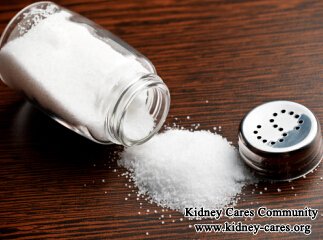 Search
Search
 Search
Search
 When diagnosed with CKD, patients are often required to follow a renal-friendly diet. One of the requirements is to control sodium intake. Why is monitoring sodium intake important for people with CKD? Now let’s have a quick look.
When diagnosed with CKD, patients are often required to follow a renal-friendly diet. One of the requirements is to control sodium intake. Why is monitoring sodium intake important for people with CKD? Now let’s have a quick look.
Sodium intake for CKD patients
Sodium is an essential electrolyte to maintain the normal function of body. Without enough sodium in the blood, you will feel weak, nausea, vomiting, poor appetite, etc. While too much sodium intake can cause edema, high blood pressure and increase the risk of heart disease. For CKD patients, their kidneys are not able to expel sodium from the blood, which may result in the accumulation of sodium. That is why monitoring sodium intake important for people with CKD.
Should all CKD patients restrict sodium intake?
Not all CKD patients should limit the sodium intake. If you have severe edema and high blood pressure, you should control sodium intake into 2 g per day or even avoid sodium intake. If your urine output is normal and you do not have high blood pressure, there is no need to restrict sodium intake. But you had better follow a low sodium diet ranging from 1 g to 4 g based on individual requirements and avoid too much sodium intake.
Food high in sodium
Table salt is the main source of sodium. There are also other foods high in sodium, such as pickles, canned foods, processed foods, bacon, cheese, bread, etc. In the daily, you should pay attention to these foods. And your dietitian can also help you determine the sodium content of your favorite foods and recommend ways to reduce your sodium intake.
CKD can not refrain you from enjoying the life. If you treat it as early as possible, it is likely to reverse the disease and live a normal life.